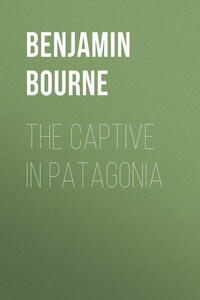Book-making is so much of a trade, that it may be thought quite unnecessary to be at the trouble to assign reasons for embarking in it; but, as it is not my own vocation, it will be allowed me to say, that the deep interest which many, not only of my personal friends, but others whom I never saw, have taken in my fortunes, and the desires expressed, both verbally and by letter, to know more of my adventures than was communicated through the newspapers, overcame the reluctance I felt to undertake such a task. The interest of personal adventure, however, great as it might be in immediate view of the events while they were fresh, would not alone have been presumed upon as a sufficient attraction for this volume. But the strangeness of the country observed, and the deficiency of exact information concerning its people, it was thought, would make welcome any contribution, however slight, to the knowledge of this section of our world and race. After the contradictory statements of voyagers as to the “giants” of South America, there may be some curiosity to hear the testimony of one who has “seen the elephant” under circumstances that enabled him to measure its proboscis.
My story is a plain one, – a simple record of facts, but not, I would hope, tedious. It offers no feats of literary agility for the critic’s inspection, but a recital of human experiences and observations, sufficiently aside from the beaten track of life to have attracted a degree of attention which flatters me with the belief that they will repay a nearer and more minute survey.
For California – Pernambuco – Straits of Magellan – Trading with Patagonians – Their treachery – Four men made prisoners by them – Three escape; the author detained, with promises of release on paying ransom – Indian village – The chief and his household – Eating, sleeping, and adventure in a Patagonian wigwam – Find myself booked for an indefinite residence in Patagonia, and some natural reflections thereupon.
Among the early subjects of the “gold fever” that became epidemic in the autumn and winter of 1848-9, a company of twenty-five men left the port of New Bedford in the schooner John Allyne, A. Brownell, master, and B. F. Bourne, mate, for California. The vessel had been selected for her good sailing qualities, light draught of water, and general fitness for river navigation. In the haste and excitement of the time, California-bound craft carried out some rather motley companies; but we considered ourselves fortunate in the character of the men associated in this enterprise, and were organized on such principles of equality as seemed to promise entire harmony and good fellowship. Of course we had high and golden hopes, and our great object was to reach the new Ophir in the easiest and most expeditious manner. On account of the delays and dangers incident to the doubling of Cape Horn, it was determined to attempt the passage of the Straits of Magellan.
We left port on the 13th of February, and for many days our time passed pleasantly, but rather monotonously, with nothing greatly to exhilarate or to depress our spirits. It was discovered, at length, that our vessel needed some running rigging. The more impatient were for going on, and making such headway as we could without it; but a majority of the company decided to run for the nearest convenient port, and replenish. We accordingly ran for Pernambuco, and anchored in the outer harbor on the 25th of March. The beauty and security of this harbor are remarkable. It is defended from the sea by a nearly perpendicular reef, extending three-fourths of the way across its entrance, with an opening of ample width for the passage of vessels to a safe anchorage. Being but eight degrees south of the equator, the town lies continually under the burning rays of a tropical sun. Its appearance is like that of most Spanish and Portuguese cities, abounding in high and massive buildings, with more of the castle than of the counting-house or dwelling in their outward expression, built upon narrow, irregular streets, that are constantly alive with men and beasts of divers colors and forms. Men from the country, driving their mustangs, mules and asses, laden with produce; wealthy and noble citizens borne by servants in palanquins; women bearing water in buckets, tubs and urns, which they balance on their heads without the aid of their hands, and walk off under as erect as so many midshipmen; – all the sights and sounds have a pleasant strangeness, that made our visits on shore highly agreeable. The churches, which are quite numerous, have nothing admirable or attractive outside, but the richness of their interior decoration testifies to the prevailing orthodoxy and fervor of devotion to the Church of Rome. The church is, indeed, the grand receptacle of the wealth of the country. Every bueno católico of them, rich, or poor, will sooner stint himself and his family in their daily comforts, or even necessaries of life, than omit his due contribution to mother church.








